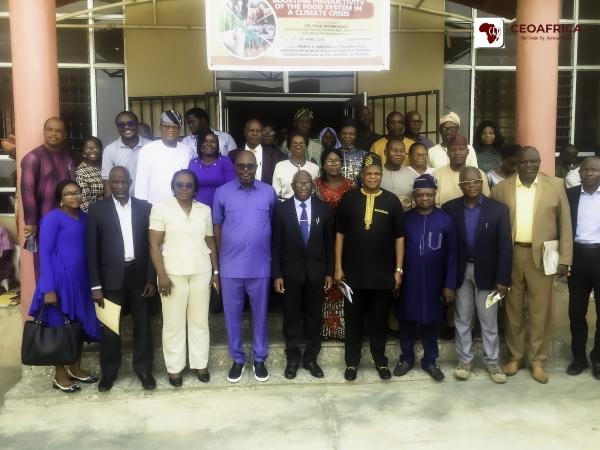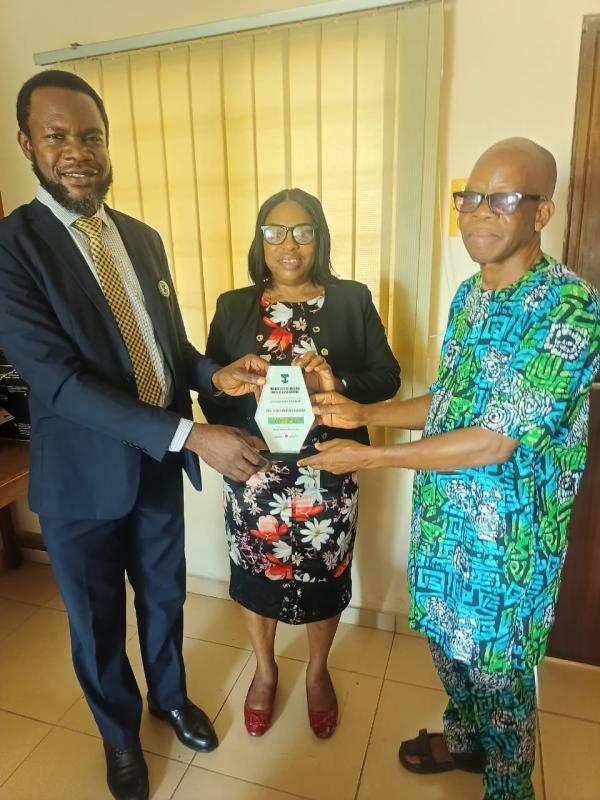
The Vice Chancellor, Obafemi Awolowo University (OAU), Ile Ife, Osun State, Professor Simeon Bamire, has said farmers, agricultural experts and stakeholders must leverage on technology, which is taking prime in all areas, to combat the prevalent food crisis in Nigeria.
Prof. Bamire who doubles as the Chairman, Governing Board of the Institute of Agricultural Research and Training (IAR&T), Ibadan said this while delivering the Chairman’s speech at the opening ceremony of the IAR&T’s 35th Southwest Research Extension Farmers Input Linkage Systems (REFILS) programme and 2023/2024 Annual Research Review held on Monday, April 15, 2024 at Prof E. A. Adebowale Training Hall, IAR&T, Apata, Ibadan, Oyo State.
While congratulating the institute and its Director, Professor Veronica Obatolu, for the occasion and the various impacts of the institute especially in the area of ensuring food security despite the challenges of the country, the VC admitted that their chosen theme, “Boosting Productivity of Food System in a Climate Crisis” could not be more relevant than now in the face of emerging global challenges, that includes dwindling resources, erratic weather patterns, and increasing food demand.
According to him, when challenges come by, solutions must be provided, commending that the institute has been at the forefront of the activities of REFILS aimed at tackling multifaceted challenges posed by a changing climate.
“This workshop is aimed at enhancing agricultural productivity. I am also delighted to inform you that the collaboration between IAR&T and the university is instrumental to driving positive changes and promoting sustainable development. The synergy between the institute and the university has enabled us to channel collaborative efforts towards visualising research and development in the agricultural sector and other areas, thereby contributing to national development and sustainable development goals,” he said.
Bamire charged the stakeholders to consider key areas like, development of prototypes of technologies and innovations for the commoditization of priorities and agricultural value chains in Nigeria done in accordance to international standards; development of adaptive and affordable protocols, procedures and technologies for innovative transformation of raw agricultural products, leveraging intellectual property right potentials; forging of partnerships and collaborative linkages with relevant stakeholders to build strategic alliances; foster training arrangements and develop knowledge management to form sustainable agricultural development, among others, in their technical workshops and discussions.
The Vice Chancellor also noted, “Another important thing is data. As we continue to solve problems, we must be able to identify the numbers and people concerned in the agricultural sector so that whatever type of input or output we are getting, we will really be demonstrating the real time situation.”
Bamire concluded that “Let us harness our collective expertise, innovations and determination to chart a sustainable path for our food systems amidst challenges of a changing climate.”
“Ensure most of what is being done in various areas of research to be promoted through various advertising platforms for people to know what we are doing,” he said.






















